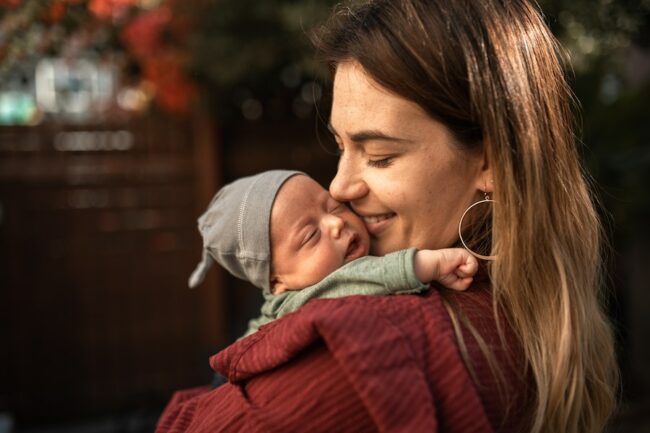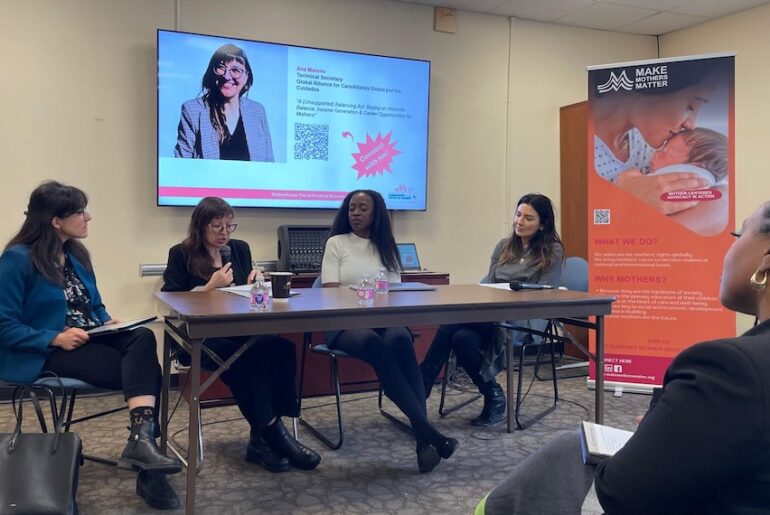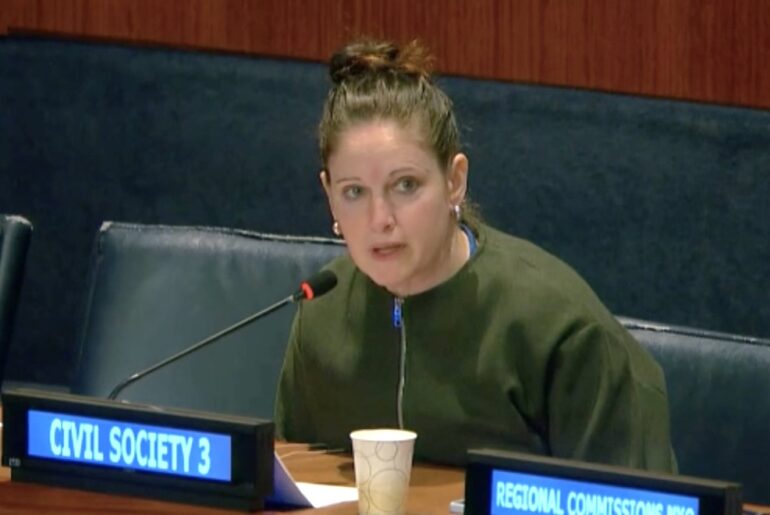Peripartum mental health issues must be better recognized and addressed
26.08.22
UN Geneva - Answering to a call for input on a draft joint OHCHR/WHO Guidance note on mental health, human rights and legislation, MMM called for a specific focus on maternal mental health, highlighting the high prevalence of mental health concerns among pregnant women and new mothers, their crucial impact on early childhood development and the costs of inaction.

Pregnancy and the first year postpartum – referred to as the peripartum period – constitute a period of tremendous physiological, psychological, and social changes in women’s lives. It is now well established that the transition to motherhood is increasing women’s vulnerability to the development of mental disorders.
It is estimated that globally nearly 1 in 5 women will develop mental health problems during pregnancy or within the first year postpartum. The most prevalent peripartum mental health problems are depression and anxiety.
Unfortunately, many cases of postpartum mood disorders are undetected and therefore, untreated. This means that a large number of mothers suffer in silence, as the stigma and the lack of knowledge surrounding peripartum mental illnesses are significant barriers to accessing healthcare.
Peripartum illness not only adversely affects the mother and her overall health, but it also disrupts the mother-baby dyad and family relationships, which in turn affects the baby’s health and early development. We know that the earliest experiences shape a baby’s brain development, and have a lifelong impact on their mental and emotional health, as well as their physical, cognitive and social development. The neglect, stress or even violence that can result from a mother’s mental health problems can produce physiologic disruptions or biological memories that undermine a child’s development and their potential for productive participation in society later in life.
And this translates into a high financial cost on society as a whole: a 2014 study by the London School of Economics has shown that economic costs of peripartum mental illness for the UK society is about £8.1 billion for each one-year cohort of births, of which 72% relates to the child and 28% to the mother. The LSE report also suggests that the cost to the public sector of peripartum mental health problems is 5 times the cost of improving services.
It is therefore crucial that Peripartum mental health problems are better recognized and addressed. The Guidance Note provides an opportunity to put a spotlight on these issues so that more is done on prevention, detection and treatment.
Maternal mental health assessment should be included in planned antenatal and postnatal care visits and related costs considered as a high-return investment.
![]() MMM’s full answer for download
MMM’s full answer for download
The objective of the Guidance note to be jointly issued by the Office of the High Commissioner for Human Rights (OHCHR) and the World Health Organisation (WHO) is to become a resource for countries when considering legislative measures in support of transforming mental health systems, in line with international human rights law. The call for input on the draft Guidance was open to all stakeholders.
Mothers, unpaid care work and global crises – connecting the dots
02.07.24
UN New York / HLPF - Register now to join us online at this year’s High Level Political Forum side-event.
Time Poverty and the Motherhood Penalty
Unveiling Economic and Social Injustices
09.07.24
Mothers play an essential role in families by ensuring their loved ones are nourished, educated, and healthy, but their unpaid care work often leads to economic and social injustices, known
Envisioning care as a common thread to global crises
29.07.24
UN New York - Our virtual HLPF side-event brought together experts to shed light on how the various global crises we face (in particular climate change and other environmental crises,








